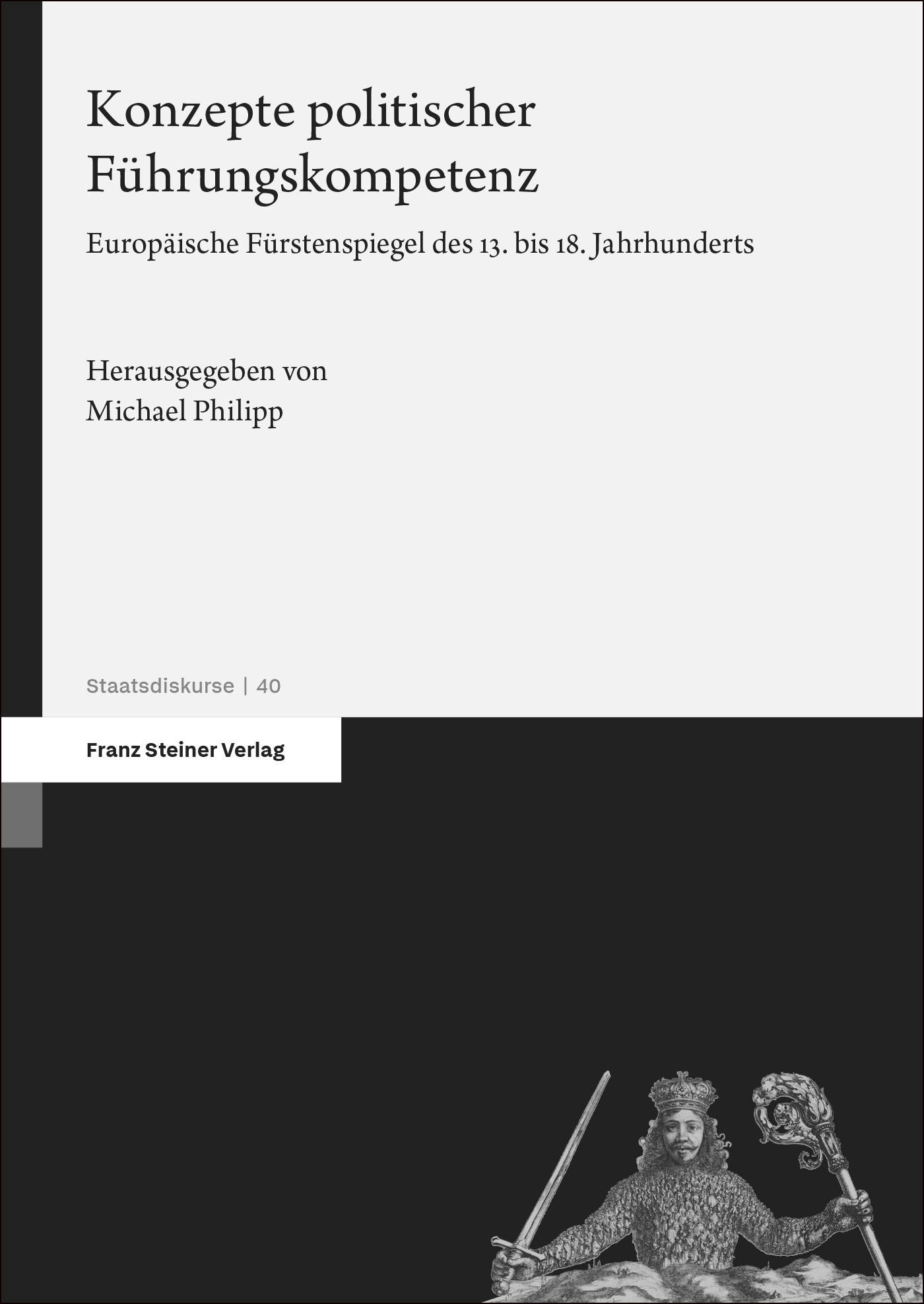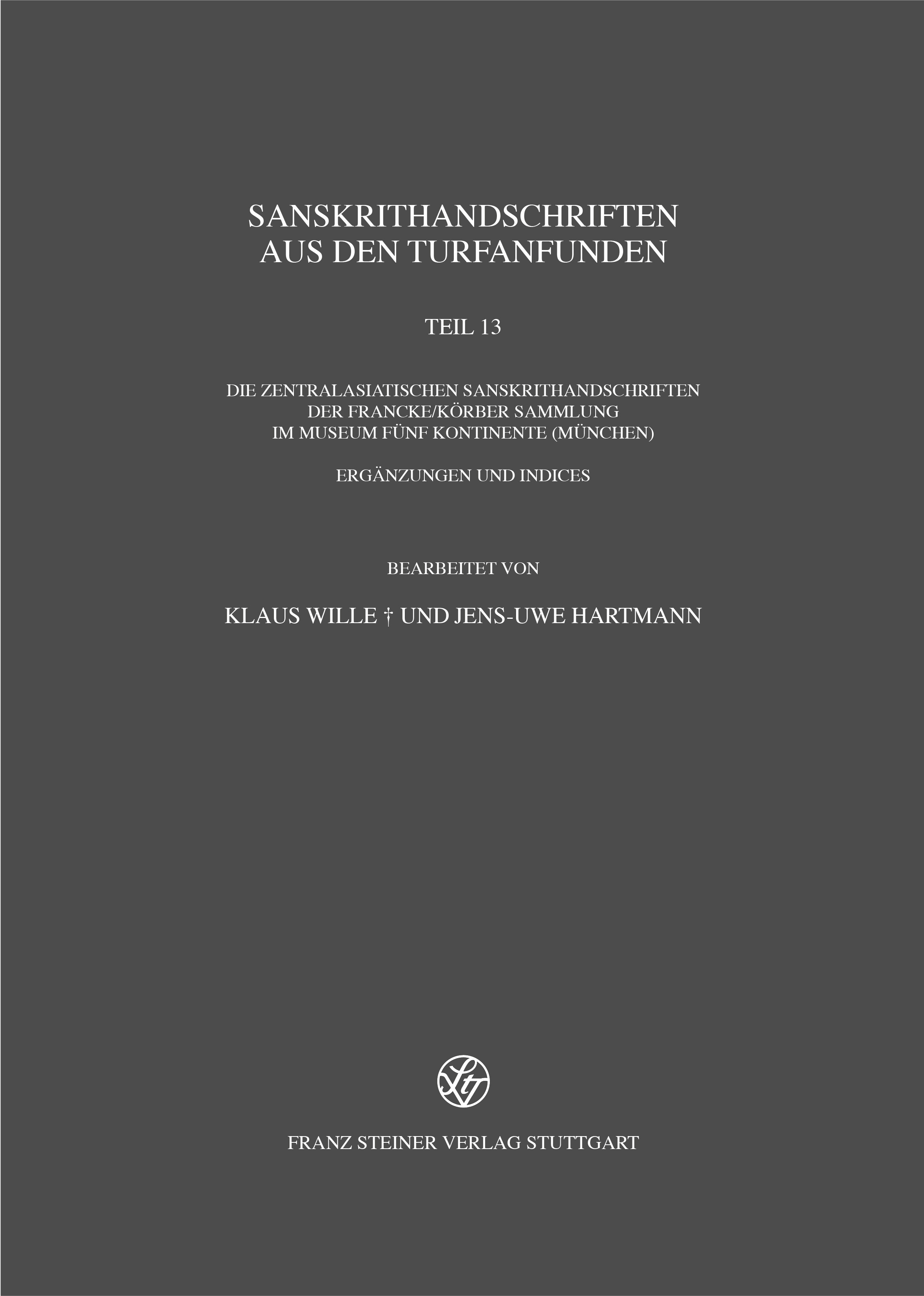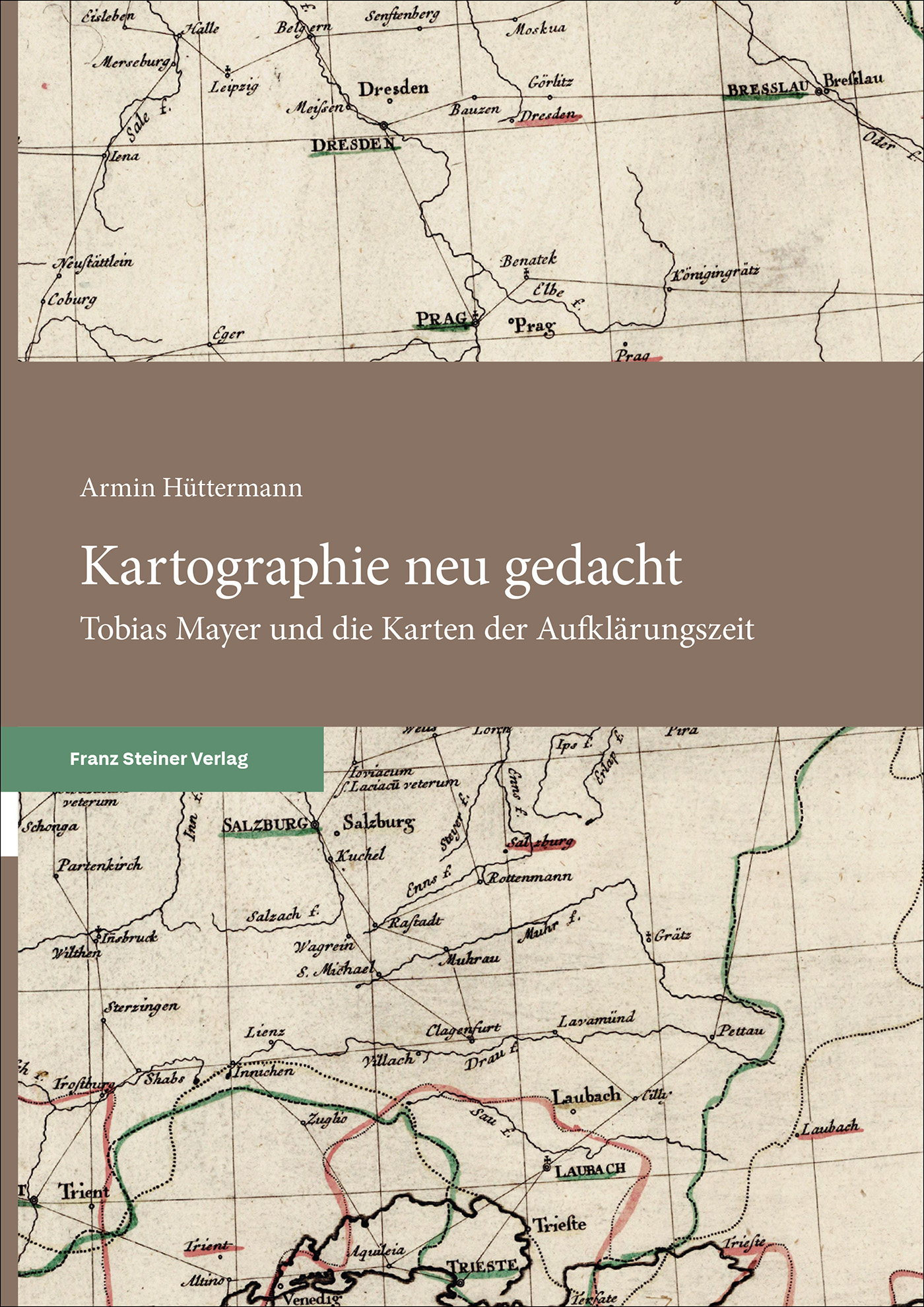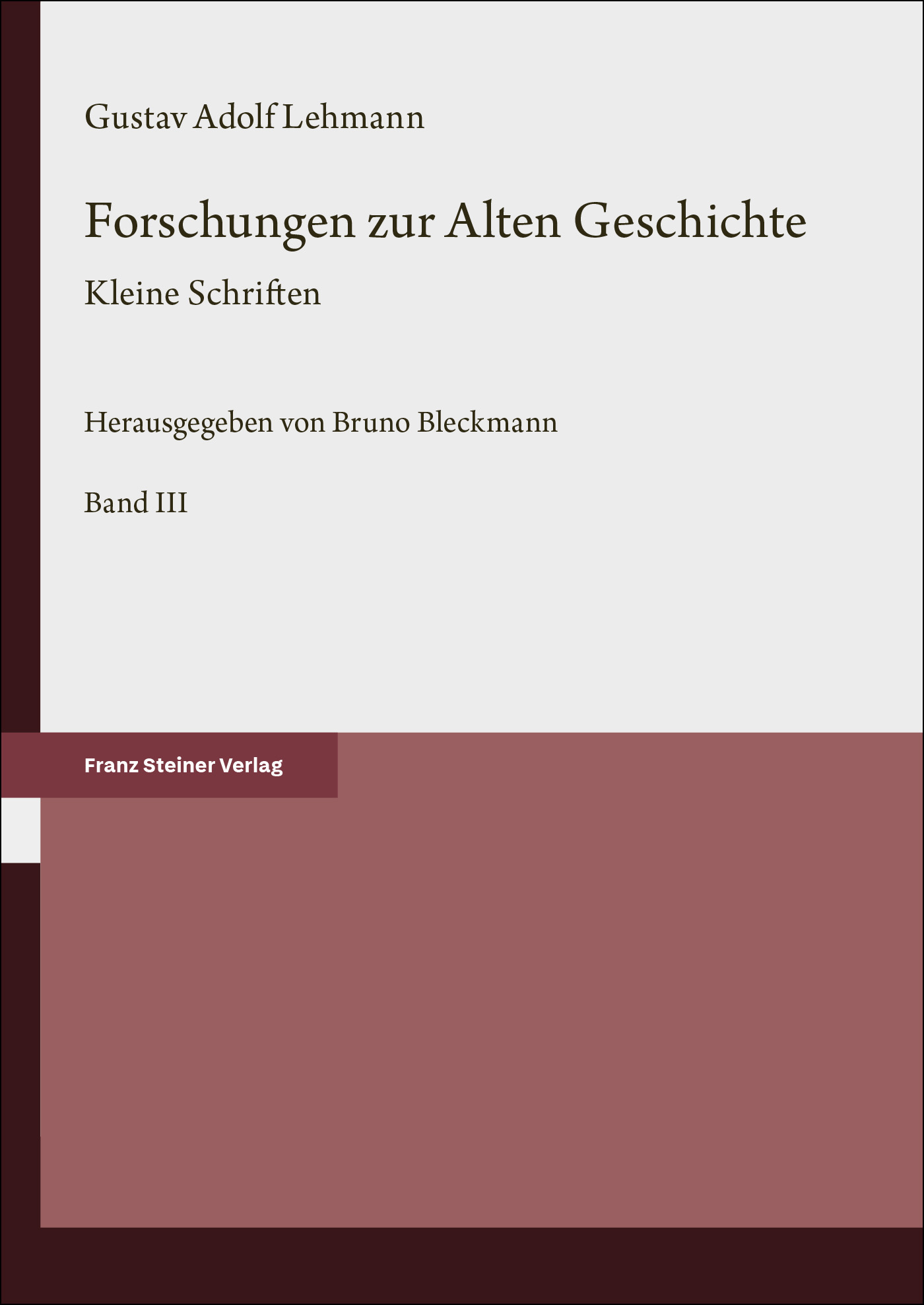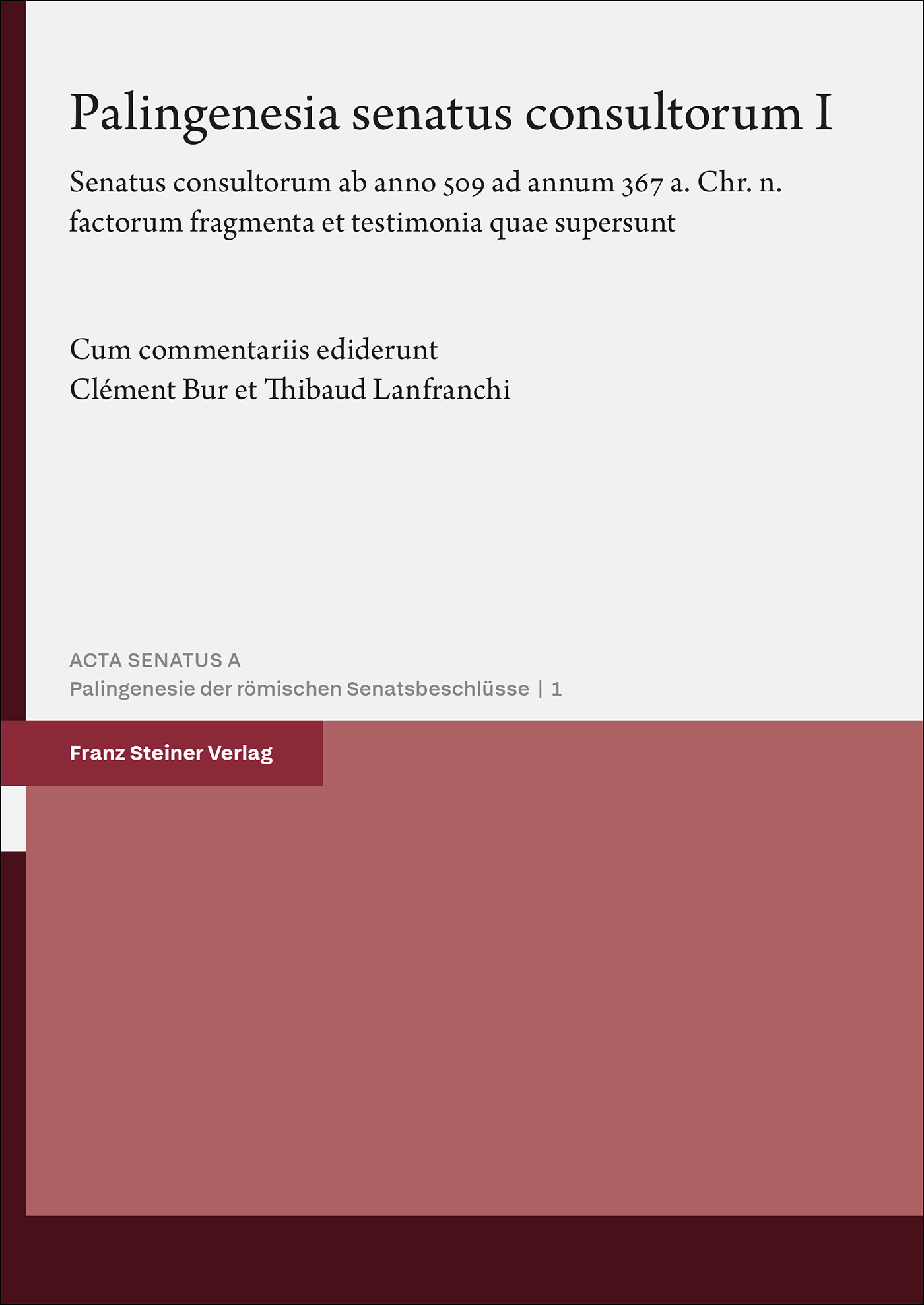T&C booksellers
General terms & conditions of sale of Franz Steiner Verlag GmbH for the retail trade
Section 1 – Scope
These terms & conditions of sale apply exclusively to entrepreneurs, legal entities under public law and special funds under public law within the meaning of Section 310 (1) of the German Civil Code (Bürgerliches Gesetzbuch – BGB). Franz Steiner Verlag GmbH (“Publisher”) will only recognise terms and conditions of the Purchaser that are contrary to, or deviate from, its own terms & conditions of sale if it have expressly agreed to their validity in writing.
These terms & conditions of sale also apply to all future transactions with the Purchaser provided that these are legal transactions of similar nature.
Section 2 – Offer and entering into contracts
If an order is to be considered an offer pursuant to Section 145 BGB, the Publisher will accept it by issuing an invoice or order confirmation. By accepting deliveries, the Purchaser agrees to the terms of delivery and payment set out hereunder.
Section 3 – Prices
All orders will be executed at the prices valid at the time of the order’s receipt by the Publisher. The Purchaser undertakes to observe all fixed prices that the Publisher imposes on price-bound products of the Publisher. Intermediaries must in turn obligate their customers accordingly. In the event of non-compliance, the Publisher is entitled to cease further deliveries. Where the Publisher has doubts as to whether the fixed retail prices are being adhered to, it is entitled to decline the order and refrain from delivery.
Consignment costs will be charged additionally if the Purchaser does not make use of the collective delivery services and no alternative agreements have been reached.
Section 4 – Payment, payment default
Payment falls due within 21 days after invoicing, unless otherwise agreed. The Publisher reserves the right to deliver only against advance payment.
In the event of a payment default, all of the Publisher’s other outstanding claims, if any, at the time of the occurrence of the default fall due forthwith. The Publisher is entitled to withdraw from the contract if the Purchaser is in default of payment. The Publisher may charge default interest at the statutory rate on the total claim, from the time at which the default occurs onwards. The assertion of further damage caused by default remains unaffected.
The Publisher is entitled to exclude a defaulting Purchaser from further deliveries and to dissolve existing business relations for other reasons which are material for the Publisher.
Section 5 – Right of retention
The Purchaser is only entitled to exercise the right of retention insofar as the Purchaser’s counterclaim is based on the same contractual relationship.
Section 6 – Delivery period
The commencement of the delivery period specified by the Publisher is dependent on the Purchaser’s timely and proper fulfilment of the Purchaser’s obligations. The Publisher reserves the right to defence of non-performance of contract.
Where the Purchaser is in default of acceptance or culpably violates other duties to cooperate, the Publisher is entitled to demand compensation for any loss incurred by it in this respect, including any additional expenditures. The Publisher reserves the right to assert further claims. Where the aforesaid conditions are present, the risk of accidental loss or accidental deterioration of the object of purchase transfers to the Purchaser at the point in time at which the Purchaser is in default of acceptance or debtor’s delay.
Any further legal claims and rights of the Purchaser due to delayed delivery remain unaffected.
Section 7 – Transfer of risk upon consignment
If the goods are sent to the Purchaser at the Purchaser’s request, the risk of accidental loss or accidental deterioration of the goods transfers to the Purchaser upon consignment to the Purchaser, but no later than the point in time at which the goods leave the factory/warehouse. This applies irrespective of whether the goods are consigned from the place of performance and irrespective of who bears the consignment charges.
Section 8 – Retention of title
The Publisher retains ownership of the delivered item until all receivables arising from the delivery contract have been settled in full. This will also apply to all future deliveries, even if the Publisher does not always expressly refer to this. The Publisher is entitled to retake possession of the object of purchase if the Purchaser acts in violation of the contract.
The Purchaser undertakes to handle the object of purchase with care as long as ownership has not yet transferred to the Purchaser. As long as ownership has not yet transferred, the Purchaser must notify the Publisher forthwith in writing if the delivered item is seized or subject to other interventions by third parties. Where the third party is unable to reimburse the Publisher for the court costs and out-of-court costs of a legal action pursuant to Section 771 of the German Code of Civil Procedure (Zivilprozessordnung – ZPO), the Purchaser will be liable for any resulting loss incurred by the Publisher.
The Purchaser is entitled to resell the goods that are subject to retention of title within the Purchaser’s ordinary course of business. The Purchaser here and now assigns to the Publisher the claims against the buyer arising from the resale of the conditional goods in the amount of the final invoice total agreed with the Publisher (including value added tax). This assignment applies regardless of whether the object of purchase was resold without or after further processing. The Purchaser remains authorised to collect the receivables even after assignment. This does not affect the authority of the Publisher to collect the receivables itself. However, the Publisher will not collect the receivables as long as the Purchaser meets its payment obligations from the collected proceeds, is not in default of payment, and, in particular, as long as no application for bankruptcy proceedings has been filed and as long as payment has not ceased.
Any treatment, processing, or alteration of the object of purchase by the Purchaser always takes place in the name of, and on behalf of, the Publisher. In this case, the Purchaser’s expectant right to the object of purchase carries over to the remodelled item. Where the object of purchase is processed together with other items not owned by the Publisher, the Publisher acquires co-ownership in the new item at the ratio of the objective value of the Publisher’s object of purchase to the other processed items at the time of processing. The same applies in the case of mixing. Where mixing takes place in such a way that the item of the Purchaser is to be regarded as the principal item, it is deemed to be agreed that the Purchaser proportionately assigns co-ownership to the Publisher and holds the thus created sole property or joint property in safe custody for the Publisher.
The Publisher undertakes, upon the Purchaser’s request, to release the collaterals to which the Publisher is entitled if the value of those collaterals exceeds the receivables to be secured by more than 20 percent.
Section 9 – Warranty, notice of defects, manufacturer’s recourse
Any warranty rights of the Purchaser are subject to the Purchaser having properly fulfilled the obligation to inspect the goods and lodge complaints pursuant to Section 377 of the German Commercial Code (Handelsgesetzbuch – HGB).
Claims for defects become time-barred 12 months from the time that the goods that were supplied by the Publisher are delivered to the Purchaser. The statutory limitation period applies to claims for compensation in the case of intent and gross negligence as well as in the case of an injury to life, body or health which is ascribable to an intentional or negligent breach of duty of the user.
If, despite all care having been taken, the delivered goods exhibit a defect that already existed at the time of transfer of risk, the Publisher will, at its choice, either repair the goods or supply replacement goods, provided that the notice of defects was given timely. The Publisher must always be given the opportunity to render subsequent performance within a reasonable time. The above provision does not affect the rights of recourse in any way.
If subsequent performance is unsuccessful, the Purchaser can – without prejudice to any possible claims for damages – withdraw from the contract or reduce the compensation.
Claims for defects cannot be asserted in the case of only insignificant deviation from the agreed characteristics, in the case of only insignificant impairment of usability, in the case of natural wear and tear, or in the case of damage arising after the transfer of risk as a result of incorrect or careless handling, excessive strain, unsuitable operating material, poor construction work, an unsuitable subsoil, or due to special external influences that could not have been foreseen at the time the contract was formed. Likewise, if repair work or modifications are carried out improperly by the Purchaser or a third party, claims for defects cannot be asserted for these or the resulting consequences.
Claims of the Purchaser for expenditures necessary for the purpose of subsequent performance, particularly transport, travel, labour, and material costs, are excluded if these expenditures increase because the goods delivered by the Publisher were subsequently transported to a location other than the Purchaser’s place of business, unless such transport is commensurate with the goods’ intended use.
The Purchaser may only assert rights of recourse against the Publisher insofar as the Purchaser has not entered into any agreements with the Purchaser’s buyer that extend beyond the mandatory statutory rights relating to defects. In addition, Paragraph 6 applies correspondingly to the scope of the Purchaser’s right of recourse against the supplier.
Section 10 – Right of return, return policies
Return Policies for the Book Trade of the Deutscher Apotheker Verlag Publishing Group (Remissionsrichtlinien für den Buchhandel der Verlagsgruppe Deutscher Apotheker Verlag) (valid from July 2008).
Only returns that have been approved by the Publisher will be credited. For approval, the reference data must be provided (invoice number and invoice date). The return slip that the Publisher issues must be enclosed with the returned item. Prices and price stickers must be removed. If returned goods arrive without the return slip, no credit will be issued since the returned goods shall be considered unapproved. In this case, the consignment will be made available for collection for four weeks. If the consignment is not collected, all possible claims against the publishing group are excluded. The sender bears the consignment costs for returned goods.
Fixed-purchase publications will not be taken back if they have not been on sale for at least 12 months. Publications from purchases older than 24 months will not be taken back. The invoice date is decisive for the deadline.
Exceptions:
- Damaged copies, defective copies, congress and exhibition consignments returned within 90 days
- RR or Offprint orders within the agreed period; old issues within four weeks after publication of the new issue if the purchase period does not go back more than one year
- Provably incorrect deliveries by the publishing group will be credited without prior approval.
Charges:
Where the reference data are missing, the Publisher levies a handling fee of 50 percent of the credit amount. Where the books are damaged, an 80 percent handling fee will be charged.
Section 11 – Damages and limitation of liability
The Publisher is liable for damages without limitation pursuant to the statutory provisions, unless otherwise provided for in Paragraph 2.
By way of exception, the Publisher assumes liability a) limited to the amount of the foreseeable damage typical of the contract for the slightly negligent breach of material obligations arising from the contractual obligation; otherwise b) not at all for the slightly negligent breach of immaterial obligations arising from the contractual relationship.
This applies to all claims for damages, irrespective of the legal grounds, in particular also to liability for tort.
The Purchaser must take reasonable measures to avert and mitigate damages.
Section 12 – Miscellaneous
This contract and all legal relationships between the parties are subject to the law of the Federal Republic of Germany, under exclusion of the UN Convention on Contracts for the International Sale of Goods (CISG).
The place of performance and sole place of jurisdiction for all disputes arising from this contract is the Publisher’s place of business in Stuttgart, Germany, unless the order confirmation states otherwise.
All agreements made between the parties for the purpose of execution of this contract are laid down in this contract in writing.








